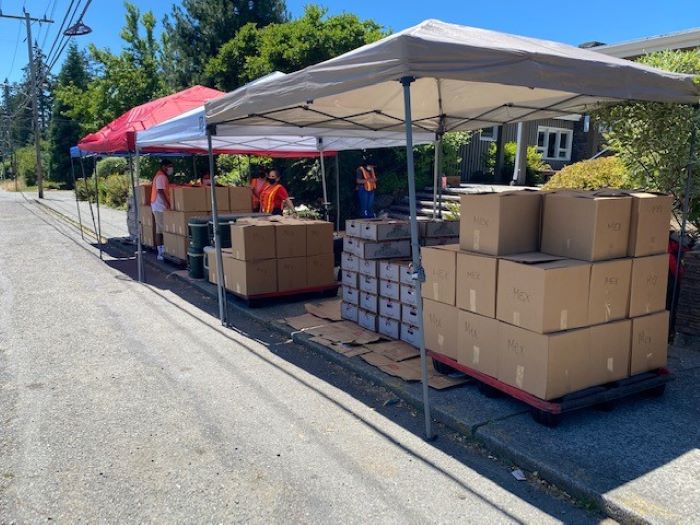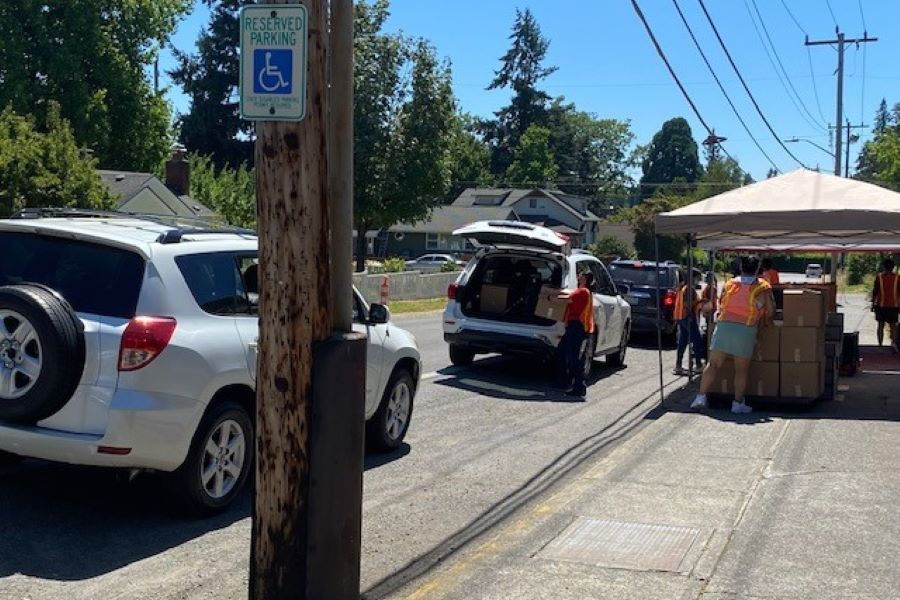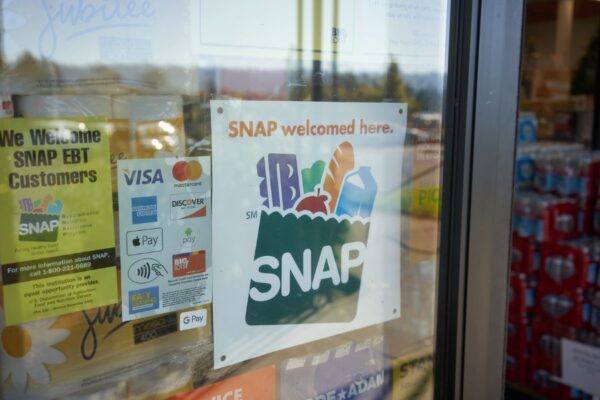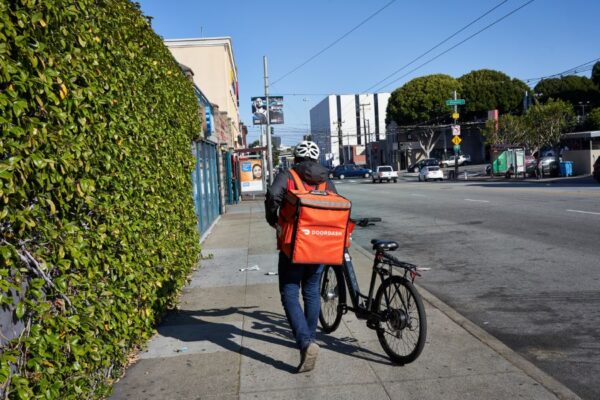Folks Call Them Food Banks, but They’re So Much More
This blog post was written by Erika Dzangare, United Way of King County food security impact manager.
Each week, more than 80 vehicles line up along streets adjacent to Lake Burien Presbyterian Church to receive boxes filled with foods from Latino cultures. Some folks arrive hours before the food bank opens to receive familiar foods.
At noon, co-founder Roxana Pardo Garcia and her staff begin checking in vehicles to the music of a local mariachi band. In the early days of COVID, Pardo Garcia saw barriers to her community’s access to healthy, culturally specific food and she created Alimentando al Pueblo, a whole-person-centered organization focused on meeting the immediate needs of hunger while also catering to people’s cultural needs, like music and social interaction at the most critical time—when these joys were scarce.
Alimentando al Pueblo prides itself on its holistic treatment of their clients; when people line up in their cars to get corn tortillas, yucca, plantains and harina de trigo they do so as individual souls, not as hungry stomachs. Alimentando al Pueblo also works hard to reduce the stigma associated with community members accepting support by making the food bank approachable and fun. Every distribution is staffed by Latino youth and adults in a “by the community, for the community” model.
Alimentando al Pueblo is a part of United Way of King County’s Food Security Assistance Program, which is among the first grants in the state to specifically provide culturally specific food funding to primarily BIPOC-led community organizations. Before Food Security Assistance Program funding, community food banks were forced to choose between buying as much food as they could or buying less, more expensive, but culturally specific foods.
As a recipient of the Food Security Assistance Program grant, Alimentando al Pueblo has been able to purchase different varieties of dried peppers, instant corn flour and beans for their clients as well as the regular food bank staples of flour, pasta and oatmeal. In addition to supporting their community through familiar foods, Alimentando al Pueblo also provides financial support to South Seattle’s Latino grocery stores by committing to buy local and Latino.
They also contract with local musicians, whenever possible, to provide tunes at their food distribution sites. Unfortunately, the structure of the Food Security Assistance Program grant does not allow Alimentando al Pueblo to pay for these artists through the grant, so Alimentando al Pueblo must draw from their programmatic funding to pay for music. This results in fewer dollars available to pay staff a living wage and fewer funds available to cover food purchases.
This funding deficit highlights the need for grant funders to reconsider their traditional approach of addressing food insecurity through strictly food purchases and staffing alone. Instead, they should address individuals holistically, as Alimentando al Pueblo strives to do. Pardo Garcia took an intentionally inclusive approach when she decided Alimentando al Pueblo would operate, citing her worries about the epigenetic ramifications of COVID in her community.

She raises the concern that Black and brown communities are more vulnerable to negative health outcomes based on their environments and that minority communities are often overlooked in times of global tragedies. Alimentando al Pueblo is Pardo Garcia’s answer to the COVID crisis and a way of giving her community a fighting chance in the historically grim epigenetic landscape.
The Food Security Assistance Program ended in October, and Alimentando al Pueblo is racing to find funding to fill the void that is left. While she remains optimistic that Alimentando al Pueblo will be able to continue their incredible work, Pardo Garcia welcomes any donations to help support the food bank and keep the music playing. Alimentando al Pueblo can be found online here.





Comments